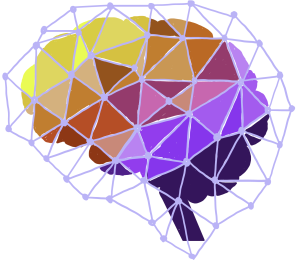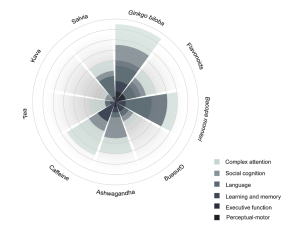
Have you ever wondered if you could increase your mental performance and think more clearly? Ever heard of Nootropics, which claim to do just that? While seeming promising, there are some important things to know about Nootropics.
What are Nootropics?
Nootropics can be easily identified as certain compounds or supplements that enhance cognitive performance. Nootropics work by increasing mental functions such as memory, creativity, motivation, and attention.[3] In other words, Nootropics are claimed to enhance certain aspects of basic brain performance beyond a state of normal cognitive function in conditions of health and disease.[2] Dated back to 6,000 BCE there are documents of “Medhya Rasayanas” which are a group of medicinal plants that improve memory and intelligence. One of the first documents of Nootropics, as the plants in this list include Ashwaganda, Bacopa monnieri (Brahmi), and Jyotismatir.[2]
Some more common examples of Nootropics include gingko biloba, American ginseng, Bacopa monnieri, Rhodiola rosea to name a few.[3] Bacopa monnieri is known as to be used for nervous system disorders such as insomnia, anxiety, and epilepsy and is found to stimulate and enhance memory and intellect. Ginkgo biloba has been shown to have neuroprotective effects from acting as an antioxidant and inhibiting amyloid beta aggregation as seen in Alzheimer’s disease. Panax, or American ginseng has been studied to improve memory performance. Lastly, Rhodiola rosea is similar to an antioxidant agent and has been shown to have neuroprotective and antioxidant effects.[3]
These plant derived nootropics as defined in the DSM-5 exert on specific neurocognitive domains. In the Diagnostic and Statistical Manual of Mental Disorders 5th version (DSM-5) there are six neurocognitive domains which include perceptual and motor, language, learning and memory, social cogntion, attention, and executive functioning. Therefore, claiming that nootropics should have an effect on at least one of the six domains to be effective for enhancing cognition. [4]

Figure 2: An example of the different Nootropics and their effects on any of the six domains as classified by the DSM-5.[2]
L-theanine and Caffeine
One interesting nootropic to look more closely at is L-theanine. L-theanine is an amino acid found in green tea that has been shown to affect brain functions by relieving stress disorders, improving mood, and helping to maintain normal sleep. In this study it suggests that L-theanine improves attentional function and working memory.[1] Interestingly, L-theanine and caffeine are both in green tea or matcha. L-theanine works as a depressant and caffeine works as a stimulant.[1] Therefore, how the two work together to increase attention could be important to look into for further studies.
Overall, there needs to be more research on nootropics and supplements which claim to increase focus, attention, or significantly improve neurocognition. Supplements with these claims have nootropic ingredients as previously mentioned, however most of them do not specify the amount of each nootropic in the supplement. As supplements are typically unregulated by the FDA and therefore could have other ingredients in them that are more harmful than good. In the nutrition world, it is best to know that supplements if anything should be ‘supplemental’ to food. Therefore, good nutritious food and exercise have been shown to have substantial positive effects on the brain and are cheaper than buying a new nootropic or supplement claiming to improve cognition.
Work Cited:
- Baba, Yoshitake et al. “Effects of l-Theanine on Cognitive Function in Middle-Aged and Older Subjects: A Randomized Placebo-Controlled Study.”Journal of medicinal food 24,4 (2021): 333-341. doi:10.1089/jmf.2020.4803
https://www.ncbi.nlm.nih.gov/pmc/articles/PMC8080935/
- Cristina Lorca, María Mulet, Catalina Arévalo-Caro, M. Ángeles Sanchez, Ainhoa Perez, María Perrino, Anna Bach-Faig, Alicia Aguilar-Martínez, Elisabet Vilella, Xavier Gallart-Palau & Aida Serra(2022) Plant-derived nootropics and human cognition: A systematic review, Critical Reviews in Food Science and Nutrition, DOI: 1080/10408398.2021.2021137
https://www.tandfonline.com/doi/full/10.1080/10408398.2021.2021137
- Suliman, Noor Azuin et al. “Establishing Natural Nootropics: Recent Molecular Enhancement Influenced by Natural Nootropic.”Evidence-based complementary and alternative medicine : eCAM 2016 (2016): 4391375. doi:10.1155/2016/4391375 https://www.ncbi.nlm.nih.gov/pmc/articles/PMC5021479/
- Morè, Lorenzo, et al. “Enhancing cognition through pharmacological and environmental interventions: Examples from preclinical models of neurodevelopmental disorders.”Neuroscience & Biobehavioral Reviews 110 (2020): 28-45.